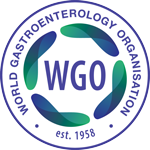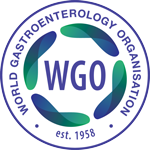For hepatitis C access is the key to success
Review by Prof. Eamonn Quigley (USA)
Study Summary
In this study the authors prospectively compared mortality related to infection with hepatitis C in Spain before and after free treatment with direct-acting anti-virals became available across the country in 2015. All residents in Spain from 2001 to 2018 formed the study population. In comparing mortality rates before and after the availability of anti-virals, the authors noted a decrease in all-cause mortality, but the reduction was much greater for all mortality related to hepatitis C (RR 0.53) and HIV than for other causes. After the intervention there was also a greater acceleration in the downward mortality trend for hepatitis C and HIV, as well as hepatocellular cancer, while no change was noted for cirrhosis, in general.
Commentary
One of the great success stories in medicine over the span of my career has been hepatitis C. Cases of hepatitis which did not fit with either A or B began to emerge in the 1970s and 80s and were given a name that highlighted our ignorance – non-A non-B hepatitis. Various theories for its causation were promoted only to be discarded with the definitive description of the hepatitis C virus and, not too soon later, the formulation of anti-viral regimens which very quickly have proven curative. So, in the span of a few decades a disease appeared, its cause was elucidated, and a cure developed – a remarkable story. Prevention remains a challenge. Meanwhile, the greatest barrier to eliminating this virus, whose burden on mortality and societal costs is considerable and world-wide, is access to effective treatment. Unfortunately, where the need is greatest (in low resource populations) access is poorest. Efforts to provide free access to vaccination, in the case of hepatitis B, or anti-retrovirals, for HIV have been shown to pay real dividends. This Spanish study echoes experience in Egypt, Mongolia and elsewhere, illustrating how a similar strategy can work for hepatitis C. These success stories have relied on major commitments from both governments and the pharmaceutical industry, and guidelines recommending one-time serologic screening of all adults for asymptomatic hepatitis C infection. That access can be enhanced in a cost-effective manner for those who most need it has also been demonstrated by the work or philanthropic and non-governmental agencies such as Project ECHO (https://projectecho.unm.edu). We can now imagine and work toward a world free of hepatitis C.
Citation
Politi J, Guerras JM, Donat M, Belza MJ, Ronda E, Barrio G, Regidor E. Favorable impact in hepatitis C-related mortality following free access to direct-acting antivirals in Spain. Hepatology. 2022;75:1247-1256.
View past News You Can Use commentaries

